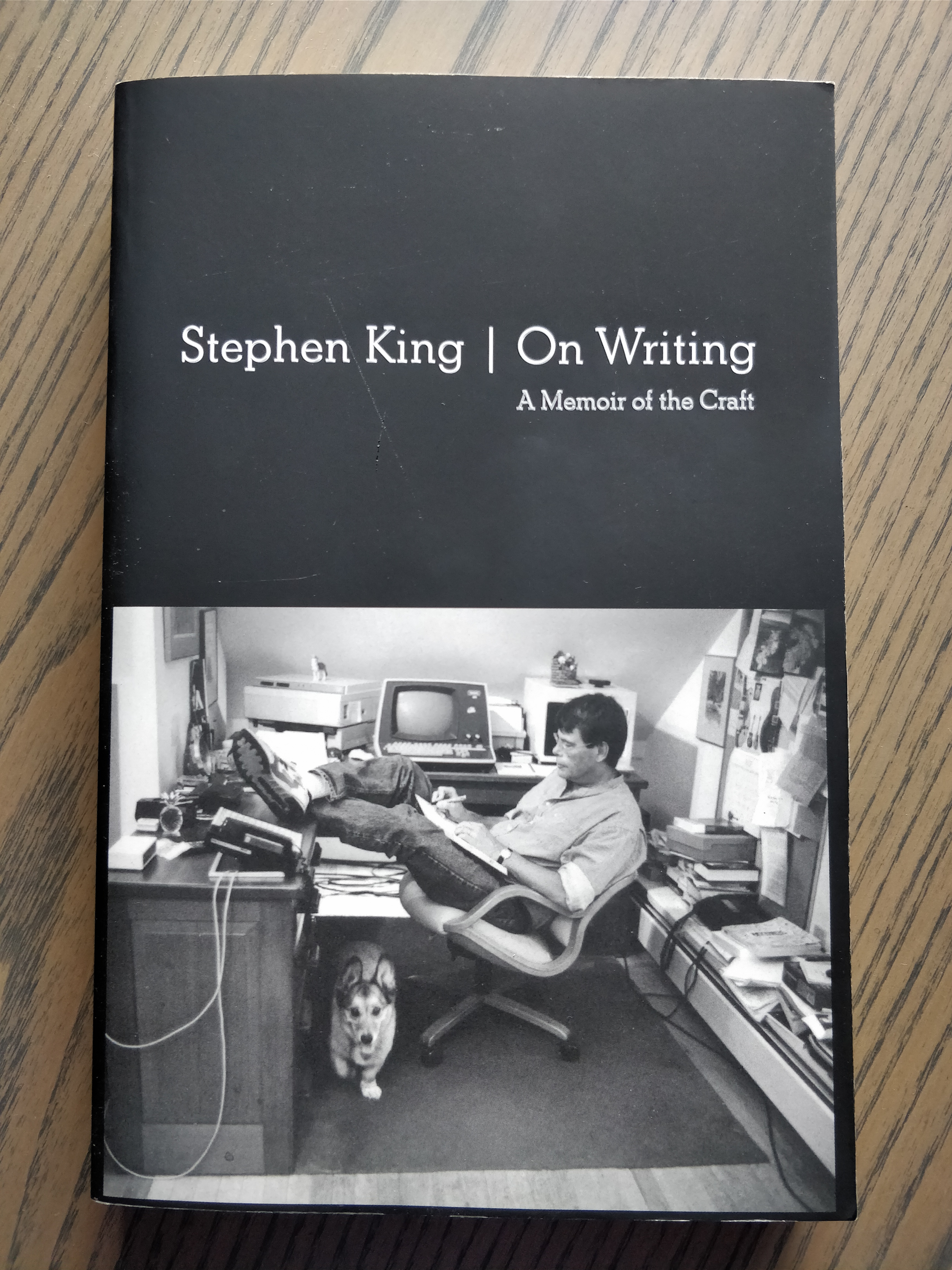
If 2017 was a great year for me in terms of reading my piled-up books and writing my own work, 2018’s first quarter was the exact opposite. From January onward, I’ve been feeling demotivated and quite uninterested in all the personal projects I’d lined up.
So basically… I’ve accomplished little to nothing so far for this year. Yay, me. Well, I did write a one-act play for grad school. But I wasn’t happy with the final result, and I’m not even sure if I’ll ever revise it again.

I figured I needed a stern reminder to write for myself, preferably with books on writing that I can go through relatively fast. Turns out there are two reminders on my shelf — well-known resources for writers in various career stages, and required reading for me when I was taking a fiction techniques class last year. Then again, even if you’re not enrolled in a writing program, or concentrating on writing fiction, I suggest you consider them required reading too.
Let’s make this quick so you (and I) can spend more time writing!
The King speaks

I’ve worshipped many authors over the years and hunted down their entire bibliographies, but for some reason I wasn’t as into Stephen King‘s work as everyone else (not saying that’s his fault!). I did own and read a few King novels back then: I had paperback copies of Salem’s Lot and Thinner, and was quite familiar with Cujo and Christine, which did not help with my childhood fears of rabid dogs and sentient cars. Today, Cell and The Dark Tower series are on my book shelves and Kindle, respectively, and I’ve seen several movie adaptations of his novels, but I have a long way to go.
It pisses me off even more that I’m so late to the party. I thoroughly enjoyed reading the half-autobiography, half-writing guide On Writing: A Memoir of the Craft, so much that 291 pages wasn’t enough for me. Not only was it a quick read (three to four days total), but it was unexpectedly funny and matter-of-fact, even when it delved into King’s 1999 car accident, recovery, and return to writing. No drama; all story and first-hand knowledge. It’s not just about storytelling and talent, people!
Reading the book gave me the feeling of having a long conversation with him over coffee (or maybe whiskey), shooting the shit about his personal life, the back stories behind his stories, and our chosen profession. His tone is consistent, and he provides a realistic view of writing (fiction novels) as a career path: it’s not the romanticized image of creative writing everyone else has. He does have a penchant for using old-timey words you’ll have to look up, but to each his/her own.
Aspiring writers will also appreciate King’s practical (and super-specific) tips on writing and publishing, from creating your first draft to finding an agent. Some won’t apply to Filipino writers, though — do we actually have literary agents in the Philippines??? — but can be really helpful if they decide to seek representation abroad.
I do have one request. It’s been 18 years since the first edition of On Writing was published; I have the 2010 edition from Scribner. Some of King’s tips are already outdated in 2018. I’d like to know what his current thoughts are regarding self-publishing or vanity presses, finding an agent, and modern publishing in general. Did his opinion/methods change?
Know this

If reading King’s On Writing felt like being in a conversation with the author, reading Butch Dalisay‘s The Knowing is In the Writing: Notes on the Practice of Fiction felt like sitting in on one of his classes at UP. I’m not familiar with his work either, but I do know who he is — I’m not that dense. I’ve been following his blog and his The Philippine Star column for years now; and I know him as a big fan and collector of fountain pens, which I was into for a while.
Anyway. Dalisay’s style here is more formal, whether he’s brushing you up on fiction writing basics, or tackling a topic on his reprinted newspaper columns. This is a textbook/classroom reference after all, so this is expected. He also provides a nice contrast with King’s DIY approach, given his background in the academe and ongoing work in publishing and national writing workshops. But even with the formality, you’ll go through The Knowing is In the Writing without any problems.
This book is also more suitable for Filipino writers who want local references. Dalisay’s columns on the craft and living as a writer in the Philippines, the different literary genres, ending stories on a happy note, the themes of good and evil, finding a publisher, knowing your reading market, and how to hold a book launch/signing remain helpful and hold true more than a decade later. It accomplishes the same goals as King’s book in that it deromanticizes writing and zeroes in on the real details. But it also emphasizes that Filipino authors worldwide have to look at writing and publication as just two parts of an entire business that you need to know inside and out.
As with King, I want to know if Dalisay’s views on what he’s discussed here have changed since 2005. Safe to say an update is in order?
On Writing: A Memoir of the Craft, Stephen King
Paperback, Scribner
Buy: Fully Booked | Amazon | Barnes & Noble | Kobo | Book Depository
The Knowing is In the Writing: Notes on the Practice of Fiction, Jose Y. Dalisay, PhD
Paperback, University of the Philippines Press
Buy: UP Press | Amazon | Book Depository
